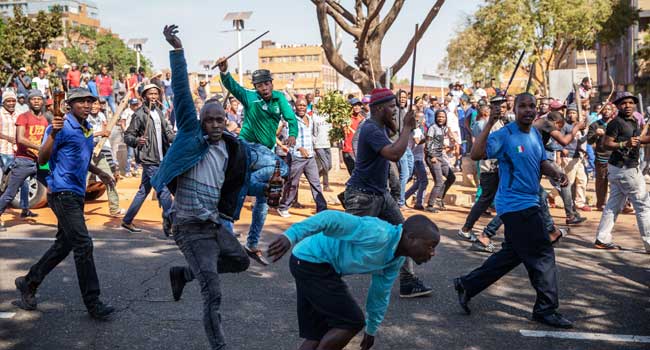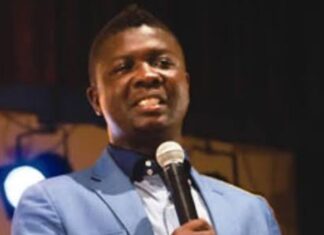By Ishaya Ibrahim
In Nelson Mandela’s autobiography, Long Walk to Freedom, a book so great that the Boston Globe said it should be read by every person alive, the Madiba as he is fondly called, said: “No one is born hating another person because of the colour of his skin, or his background, or his religion. People must learn to hate, and if they can learn to hate, they can be taught to love, for love comes more naturally to the human heart than its opposite.”
In South Africa, many are hateful of others for being Nigerians, Zambians, Zimbabweans, Ghanaians, and nationals of other Sub Saharan African countries. This group of haters doesn’t share Mandela’s philosophy.
After a looting spree, one of them explained the rationale of their action: “We don’t want foreigners here, even if you belong to Ghana, Zambia or Botswana. We know that some of our exiles were there. But now we don’t want them here because they say they are coming for work here. But South Africans are suffering. Nigerians come with big cars. Where do they get the money from? They sell big cars.”
A Pew Research conducted in 2018 showed that 62 per cent of South Africans viewed foreign nationals as a burden to their society, alleging that they take their jobs and social benefits.
But Nigerians argue that they are actually the ones creating the jobs for South Africans. One of them claimed that he has ten South Africans working for him.
South Africa has a population of 58 million people. The immigrant community is four million, representing seven per cent of the population, too insignificant to dominate its labour force. So, why are South Africans hateful of foreign nationals, especially their fellow brothers from Sub Saharan Africa? The answer may be found in apartheid South Africa.
In 1953, the apartheid regime instituted segregation on education through the Bantu Education Act. The act prescribes that Black South Africans would only receive the education that prepares them for the laboring class, while their White counterparts are prepared to provide leadership.
The varied system also meant that the government spent ten times more for a White kid than a Black kid.
Mandela and his comrades protested the new regime, saying the system would only produce angry and rebellious Black South Africans. But the government stuck to its gun.
In Mandela’s seminal work, Long Walk to Freedom, he recalled meeting some of the people the Bantu Education system created in prison. He said they were hotheads, rebellious and confrontational with the prison officials. They disobeyed simple tasks like filing out for head count or dressing properly. They were simply monsters created by the state.
Even Mandela got a piece of their mind. They derided the leaders of the Africa National Congress (ANC) as too soft for accommodating non blacks in the freedom struggle.
And once apartheid was defeated, this same group blame other nationals for their economic poverty. And like Mandela said in his epic book, they have learned to hate.
In one video, they are seen setting fire on a shop owner and throwing business entrepreneurs out of the corridor of a ten story building. Their offence? They are not South Africans.
The task therefore for the South African government should be to teach these people how to love because love comes more naturally to the human heart than it’s opposite.













